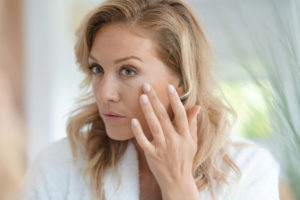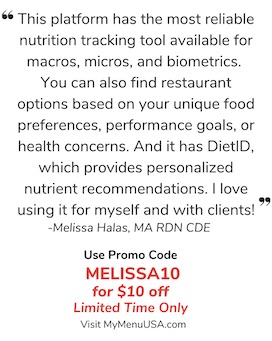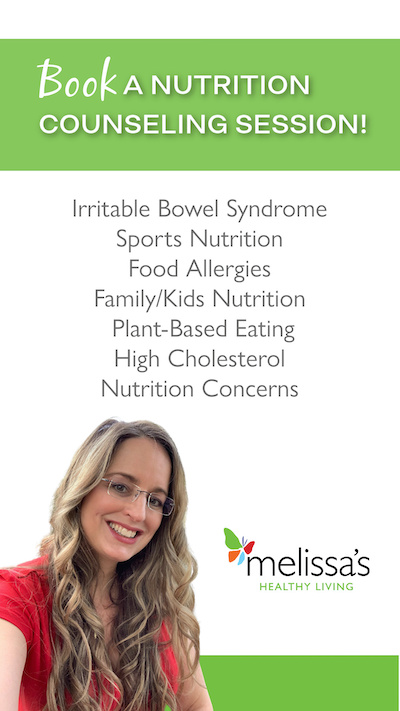
Is collagen the nutritional fountain of youth? Do collagen supplements reduce fine-lines and actually work? Read on to see what the latest research shows! You may be surprised.
Usually, when I talk about collagen, it’s with athletes or exercise enthusiasts. I’ve discussed its role in muscle stability, bone health, and healing, but until recently, I had not studied its role in skin care and aging. (1) My interest in its role in skincare and aging was sparked when a friend told me she had been drinking bone broth. “Have you jumped on the collagen train?” she asked me. And I started thinking if it works (youthful glow and all), is effective, and safe, would I be willing to down some collagen powder each day? Perhaps it is important to note that I don’t support a superficial definition of beauty, but I’m 100% on-board if something is beneficial from the inside-out. I’ll share with you what I found in my literature search to answer the question we all have, “Do collagen supplements work?”.
Before We Begin… What is Collagen?
Collagen is the main structural protein in skin, tendons, ligaments, and other connective tissue. (1) It provides the structural support between the middle (dermal) and outer (epidermal) skin layers, giving the appearance of bouncy, youthful texture when supplies are full. We can consume collagen, but our bodies also make it! Our bodies’ collagen production, however, decreases with age. You’ll often see that collagen decreases 1 to 2% per year after age 20. (3,15) Although we can’t precisely know the accuracy of the overall decrease in collagen production without more research, it’s clearly evident that collagen does decrease with age! Collagen also decreases as a result of poor diet choices (e.g., excess sugar intake) and environmental factors like UV exposure and pollution. (2)
Fine Lines and Collagen Supplements
In addition to food and environmental factors, our bodies also begin to break down the collagen we have. (3) Because of this decrease in collagen, our skin loses its ability to store water, which results in the dreaded “condition” we hear about on makeup commercials- fine lines. (Again, I love a youthful glow as much as the next person, but I believe there is something deeper here. Stick with me.) Now to the research. So what does the scientific literature say about collagen? Here’s what I’ve found below.
The Role Diet Plays In Collagen
Research indicates a diet rich in proteins such as beans, fish, chicken, and beef can help our bodies synthesize collagen. Foods high in Vitamin C, zinc, and copper can also promote collagen synthesis. (2) Here are foods that are excellent sources of each of these nutrients, according to the Office of Dietary Supplements: (16)
 Vitamin C: green and red peppers, broccoli, kiwi, and orange
Vitamin C: green and red peppers, broccoli, kiwi, and orange- Zinc: baked beans, oysters, beef, and cereal fortified with zinc, some nuts and seeds (i.e., pumpkin seeds and cashews)
- Copper: oysters, sesame seeds, beef, and potatoes
What’s the Real Deal With Bone Broth?
Bone broth is often cited as a fountain of youth, rich in collagen and other magical elements. While this is what initially got me interested in the topic, I don’t recommend it for the following reasons. First, although it contains some important minerals, vitamins, and hyaluronic acid (hello skin moisture!), there is a risk of lead leaching out of the bones during cooking. The risk may be small, but I would rather be safe than sorry. (13) Second, bone broth contains gelatin, BUT in a form that our bodies can’t absorb. (14) Lastly, commercial bone broth can be unnecessarily high in sodium.
Effectiveness of Collagen Supplements
So, do collagen supplements actually work? Several studies suggest that collagen supplementation (derived from pigs, cows, or marine animals) may help increase skin elasticity and hydration, thereby reducing fine lines. It is important to note that supplements must be in the form of collagen peptides to be effective. Here is what else the research had to say:
- Magic pigs cure crows feet? One study found women (between age 45-65) given 2.5 grams of Verisol, a type of collagen peptide from pigs, had a 7% decrease in eye wrinkles after 4 weeks in comparison to the placebo group, and a 20% decrease in their eye wrinkles after 8 weeks! (6)
- Magic pigs can stretch? Another study found women (between age 35-55) improved and maintained skin elasticity after taking 2.5 or up to 5 grams of Verisol oral collagen peptides (from the same pig collagen as above) for 8 weeks. The mean improvement in both groups was 7%, which was significantly more than the group taking a placebo. (7)
- My, what catfish-like skin you have! Yet another study showed improved elasticity, hydration, and wrinkles for patients (between age 40-60) after 12 weeks of taking 1000 mg collagen tripeptides derived from catfish daily – a significant finding when compared to those taking a placebo. (8)
- Your chicken did what?! Yes, another study showed that after 12 weeks of taking 500 mg BioCell collagen peptides derived from chickens, twice daily (so 1000mg daily), participants (between age 39-59) showed increased amounts of skin collagen (increased by 12%), reduced facial wrinkles, and improved elasticity. This was significant compared to the group receiving placebo supplements. (9)
- Maybe your chicken was lying… In a similar study to the one with collagen peptide supplementation above (500 mg BioCell twice daily, or 1000 mg per day), there was not a significant increase in skin collagen amounts. However, it did show significant decreases in skin dryness (by 76%!!) and facial lines in women (by 13%; between ages 35-59). (10)
- The whole shebang. A recent literature review of 11 studies found that 2.5-10 grams per day of collagen hydrolysate supplementation for 8-24 weeks (!) may not be effective for treating pressure ulcers, xerosis, skin aging, and cellulite. However, 3 grams of collagen tripeptide (remember the one derived from catfish?) taken daily for 4-12 weeks seemed to significantly improve skin elasticity and hydration. What’s more, the anti-aging benefits from supplementation with collagen dipeptide appear to be proportional to the amount taken (more supplement = more benefit, of course, to an extent). (11)
Collagen is Generally Safe
Please note, most collagen supplements are found to be generally safe with no reported adverse events. However, just because a brand is found to be safe, doesn’t mean it’s effective. In addition, supplements, in general, are loosely regulated.
Keeping Youthful Skin
Yikes, so if we can’t turn back time, what CAN we do? Correct, we cannot turn back time, but we can ensure we are protecting the collagen we have and supplementing where we can. The best way to protect the collagen we have is by protecting our skin from the sun (sunblock & hats people!) and by eating fruits and veggies (I keep saying…). (5) Early studies show that short and long-term oral supplementation of collagen peptides may be beneficial for promoting skin elasticity, hydration, and increasing collagen levels.
Check back in in a couple of weeks when I reveal which collagen supplement brands I recommend, along with how much and how often you should be supplementing. You can determine with me if it’s worth the cost and commitment for younger skin. Stay tuned!
Articles Reviewed or Cited
- Karpouzos A, Diamantis E, Farmaki P, Savvanis S, Troupis T. Nutritional Aspects of Bone Health and Fracture Healing. J Osteoporos. 2017;2017:4218472-4218472.
- Webinar of Skin, Bone & Muscle – Three GOOD Reason for Collagen, Nutrition Entrepreneur DPG Viewed on 09/30/2019.
- Rittié L, Fisher GJ. Natural and sun-induced aging of human skin. Cold Spring Harb Perspect Med. 2015;5(1):a015370-a015370.
- Varani J, Dame MK, Rittie L, et al. Decreased collagen production in chronologically aged skin: roles of age-dependent alteration in fibroblast function and defective mechanical stimulation. The American journal of pathology. 2006;168(6):1861-1868.
- Ganceviciene R, Liakou AI, Theodoridis A, Makrantonaki E, Zouboulis CC. Skin anti-aging strategies. Dermatoendocrinol. 2012;4(3):308-319.
- Proksch E, Schunck M, Zague V, Segger D, Degwert J, Oesser S. Oral intake of specific bioactive collagen peptides reduces skin wrinkles and increases dermal matrix synthesis. Skin pharmacology and physiology. 2014;27(3):113-119.
- Proksch E, Segger D, Degwert J, Schunck M, Zague V, Oesser S. Oral supplementation of specific collagen peptides has beneficial effects on human skin physiology: a double-blind, placebo-controlled study. Skin pharmacology and physiology. 2014;27(1):47-55.
- Kim D-U, Chung H-C, Choi J, Sakai Y, Lee B-Y. Oral Intake of Low-Molecular-Weight Collagen Peptide Improves Hydration, Elasticity, and Wrinkling in Human Skin: A Randomized, Double-Blind, Placebo-Controlled Study. Nutrients. 2018;10(7):826.
- Schwartz SR, Hammon KA, Gafner A, et al. Novel Hydrolyzed Chicken Sternal Cartilage Extract Improves Facial Epidermis and Connective Tissue in Healthy Adult Females: A Randomized, Double-Blind, Placebo-Controlled Trial. Alternative therapies in health and medicine. 2019;25(5):12-29.
- Schwartz SR, Park J. Ingestion of BioCell Collagen(®), a novel hydrolyzed chicken sternal cartilage extract; enhanced blood microcirculation and reduced facial aging signs. Clin Interv Aging. 2012;7:267-273.
- Choi FD, Sung CT, Juhasz ML, Mesinkovsk NA. Oral Collagen Supplementation: A Systematic Review of Dermatological Applications. Journal of drugs in dermatology: JDD. 2019;18(1):9-16.
- Papakonstantinou E, Roth M, Karakiulakis G. Hyaluronic acid: A key molecule in skin aging. Dermatoendocrinol. 2012;4(3):253-258.
- Monro JA, Leon R, Puri BK. The risk of lead contamination in bone broth diets. Medical hypotheses. 2013;80(4):389-390.
- Review of Collagen Supplements – For Skin and Joints. ConsumerLab.com. https://www.consumerlab.com/reviews/Collagen_Supplements_Review_Peptides_Hydrolysate/collagen/. Published 2019. Accessed October 1, 2019.
- Brincat M, Ph.D., Kabalan, S. MD, et al. A study of the decrease of skin collagen content, skin thickness. Obstetrics and Gynecology.1987;70(6).
- Office of Dietary Supplements. https://ods.od.nih.gov/




